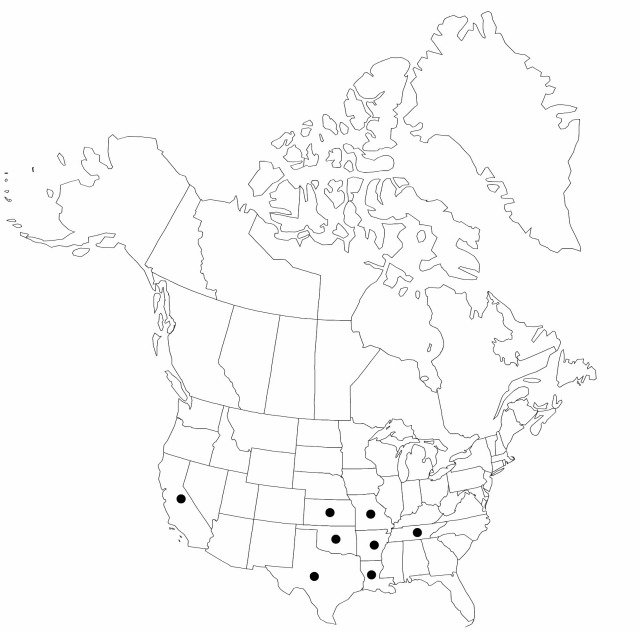Difference between revisions of "Eleocharis lanceolata"
Proc. Amer. Acad. Arts 34: 493, figs. 27–29. 1899.
FNA>Volume Importer |
imported>Volume Importer |
||
| (2 intermediate revisions by 2 users not shown) | |||
| Line 6: | Line 6: | ||
|place=34: 493, figs. 27–29. 1899 | |place=34: 493, figs. 27–29. 1899 | ||
|year=1899 | |year=1899 | ||
| + | }} | ||
| + | |special_status={{Treatment/ID/Special_status | ||
| + | |code=F | ||
| + | |label=Illustrated | ||
| + | }}{{Treatment/ID/Special_status | ||
| + | |code=E | ||
| + | |label=Endemic | ||
}} | }} | ||
|basionyms= | |basionyms= | ||
| Line 45: | Line 52: | ||
|publication title=Proc. Amer. Acad. Arts | |publication title=Proc. Amer. Acad. Arts | ||
|publication year=1899 | |publication year=1899 | ||
| − | |special status= | + | |special status=Illustrated;Endemic |
| − | |source xml=https:// | + | |source xml=https://bitbucket.org/aafc-mbb/fna-data-curation/src/2e0870ddd59836b60bcf96646a41e87ea5a5943a/coarse_grained_fna_xml/V23/V23_157.xml |
|genus=Eleocharis | |genus=Eleocharis | ||
|subgenus=Eleocharis subg. Eleocharis | |subgenus=Eleocharis subg. Eleocharis | ||
Latest revision as of 20:38, 5 November 2020
Culms 20–35 cm × 0.3–1 mm. Leaves: apex of distal leaf sheath subacute to narrowly acute, tooth to 0.3(–1.1) mm. Spikelets narrowly lanceoloid, 3–12 × (1–)2–2.5(–4) mm, apex acute; floral scales 25–100, 10–12 per mm of rachilla, orangebrown to stramineous, ovate, 1.5–2 × 1 mm, midribs mostly keeled, apex acute or narrowly rounded in proximal part of spikelet. Flowers: perianth bristles 6–7, brown, stout, the longest equaling or exceeding tubercle; stamens 2–3; anthers brown, 0.3 mm; styles 2-fid. Achenes 0.9–1.1 × 0.6–0.8 mm. Tubercles deltoid, 0.25–0.5 × 0.5–0.7 mm, 1/2–2/3 as high as wide, 1/4–1/2 as high and 2/3–4/5 as wide as achene. 2n = 10.
Phenology: Fruiting summer to fall.
Habitat: Fresh shores, stream beds, pine woods, disturbed places
Elevation: 0–400 m
Distribution

Ark., Calif., Kans., La., Mo., Okla., Tenn., Tex.
Discussion
Some collections of Eleocharis lanceolata from Tennessee appear to be intermediate with E. obtusa. The California record is an introduced rice-field weed collected in 1949.
Selected References
None.
